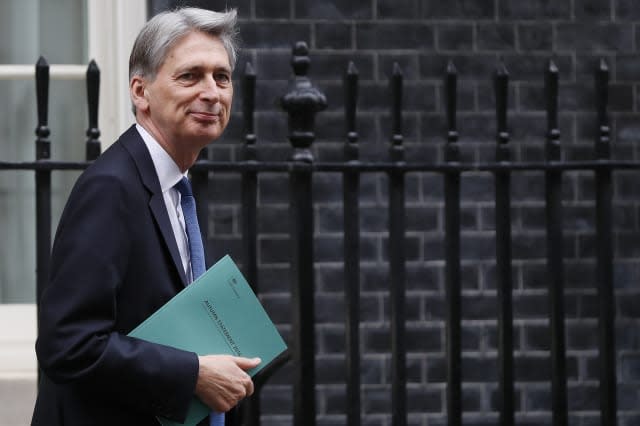Why the death of the Autumn Statement is good news for you

Chancellor Philip Hammond has pledged to abolish the Autumn Statement - and replace it with an autumn Budget instead.
"I am abolishing the Autumn Statement," he said. "No other major economy makes hundreds of tax changes twice a year, and neither should we.
"So the spring Budget in a few months will be the final spring Budget. Starting in autumn 2017, Britain will have an autumn Budget, announcing tax changes well in advance of the start of the tax year."
The March Budget will then be replaced with a new Spring Statement from 2018. But what does that mean for you?
Here's our five-minute guide to why the Budget moving to the autumn is something to celebrate.
More time to plan for tax changes
When it comes to the two economic updates made by the government each year, the Budget is the biggy. In other words, it's the one used to announce the tax changes that will most affect you.
Generally, these tax changes come in at the start of the next financial year on April 6.
So holding the Budget in November rather than March will give companies and taxpayers, who often had just a few weeks to prepare for any changes, a lot more time to get their finances in order.
Accountants have therefore welcomed the news that Budgets will be held in the autumn from next year.
Genevieve Moore, a partner at accountancy firm Blick Rothenburg, said: "Fantastic news that the UK will move the annual Budget to autumn, ensuring that there is plenty of time between announcements and the start of the tax year. This provides greater certainty to businesses and people in the UK."
Less "tinkering" with taxes
The government has to make two economic statements every year. Of these, the Budget has traditionally been the one used to announce tax changes, with the second statement concentrating on economic forecasts and spending.
In recent years, however, Chancellors have used the Autumn Statement to change taxes too.
So Hammond's claim that the new Spring Statement will not be a "major fiscal event" should lead to fewer little changes.
Sam Bowman, executive director at think tank the Adam Smith Institute, said: "Scrapping the Autumn Statement and only having one major fiscal event every year is a good thing – the temptation is for Chancellors to tinker and buy off voting groups with little policies that add up to more complexity in the tax system and more distortions in the economy."
More time for draft legislation to be reviewed
This is not the first time that a Chancellor has moved the Budget to the autumn. Back in 1993, the Conservative government shifted it to November and introduced a Summer Statement on economic growth forecasts.
But Labour Chancellor Gordon Brown moved the Budget back to spring in 1997, and replaced the Summer Statement with the Pre-Budget Report, which was then turned into the Autumn Statement be George Osborne.
Tax planners believe that taking it back to November will allow more time for draft legislation announced in the Budget to be reviewed and refined.
"Reforming the Budget to an Autumn Statement will allow Parliament greater time to review draft legislation," said Paul Smith at Blick Rothenberg.



